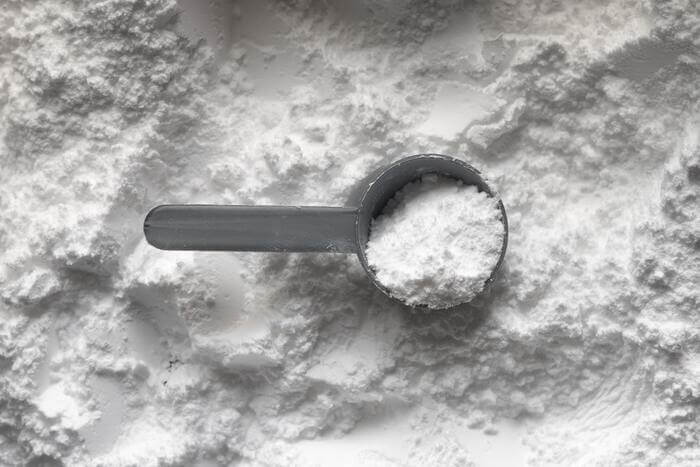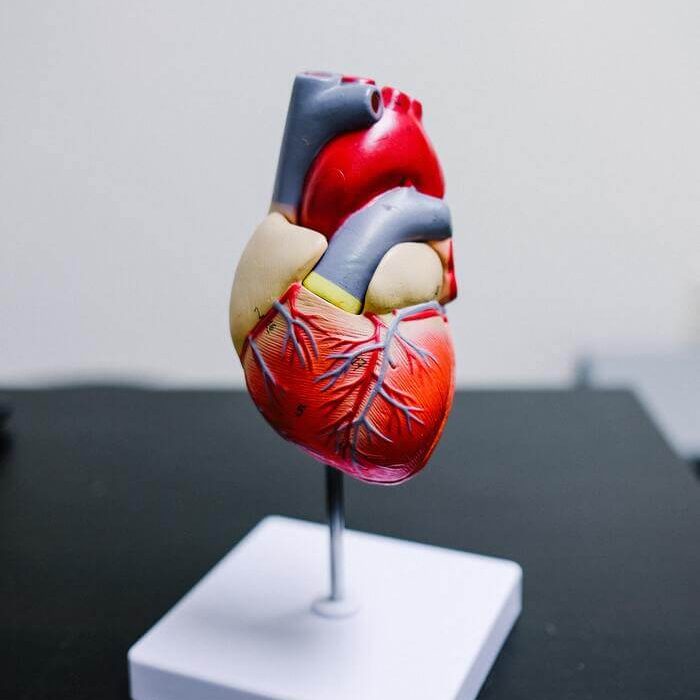
Whey protein may be the most popular protein supplement in the world, but it’s certainly not the only one out there! Casein, soy, and egg are also good sources of protein, and they all have their own unique benefits that make them appealing to specific groups of people. That being said, you may be surprised by some of the most common whey protein side effects that could come up once you begin using this supplement on a regular basis. Make sure you’re aware of these potential side effects before taking your first scoop!
Table of Contents
Bloating

For many people, there’s no better feeling than having a full belly. But while that stomach-stuffing sensation is often welcomed by our body, bloating is a different story. It can be painful and uncomfortable—and that’s not even getting into its psychological effects.
If you find yourself experiencing gas, indigestion, or flatulence after drinking whey protein shakes or any other protein drink for that matter, here are some whey protein side effects to keep in mind: In most cases, bloating from drinking whey protein is just your body adjusting to a new source of nutrients.
Indigestion

A study in Nutrition Journal found that after a 28-day period of supplementing with whey protein, participants reported experiencing indigestion. Indigestion is commonly caused by over consumption of lactose (milk sugar) and artificial sweeteners—both of which are present in large amounts in whey protein powders and is an important whey protein side effect.
If you’re experiencing gas, bloating or stomach pains after taking whey protein, consider adding more whole foods to your diet and cutting back on dairy products and sugar-based snacks. Whey may help improve gut health , but if you have problems processing it—consider finding an alternative source of protein.
Anxiety and Restlessness

Many people who supplement with whey report feeling more anxious and restless than usual. While it’s tempting to blame a lack of sleep, there’s no evidence to back up that theory. So what could be causing these unpleasant symptoms? A few theories have surfaced in recent years but researchers haven’t reached a consensus on any one cause.
Some believe it may be caused by whey protein’s ability to boost levels of serotonin—and that anxiety is simply one of the whey protein side effects. Others point out that some people do better on isolated forms of amino acids (rather than complete proteins) and so they assume those who suffer from restlessness are among them.
Effects kidney

Whey protein is often consumed by people with renal dysfunction, and with good reason. Research indicates that whey can help protect against tubular damage caused by nephrotoxic agents. However, it’s important to remember that there are some precautions you should take.
To optimize benefits while minimizing risks, restrict consumption to 20 grams per day and do not consume other high-protein foods at the same time. Also be aware of any changes in your health or urine color after consumption; if you experience either of these whey protein side effects, stop taking whey immediately and consult a medical professional.
Hair loss

Whey protein is derived from milk, so it is not surprising that there may be some side effects similar to dairy products. One of the whey protein side effects could be hair loss. Whey has a high concentration of cysteine, which helps break down amino acids and aid in digestion. However, when too much cysteine builds up in your body, it can result in sulfur dioxide, which may cause your hair to fall out. Though most people see benefits from taking whey protein powder (such as weight loss), you might want to consider switching to soy or pea protein if you are concerned about possible allergic reactions or hair loss.
Effects liver

We’ve all heard that too much of a good thing can be bad, but even healthy foods like whey protein can have unexpected side effects if taken in excess. The biggest risk of whey protein is actually associated with its main benefit: high levels of proteins and amino acids.
Whey is digested in your stomach and small intestine, where they are broken down into amino acids and absorbed through your intestinal walls into your bloodstream. This process stimulates insulin production which leads to an increase in blood sugar levels. As blood sugar rises, it triggers a release of glucagon from your pancreas which stimulates liver cells to break down glycogen into glucose for energy or fat storage.
If you consume large amounts of whey protein on a regular basis without increasing your physical activity level, you may experience fatty liver disease as well as insulin resistance (both can lead to diabetes). To avoid these conditions and any other long-term health problems related to excessive consumption of whey protein, you should limit yourself to one scoop per day or less depending on your body weight and activity level.
Whey protein side effects on skin

Whey protein is beneficial for your skin, too. Not only does it have an anti-inflammatory effect on your skin, but there’s also some research to suggest that supplementing with whey proteins can lead to a reduction in oxidative stress and lower levels of inflammation. This may in turn help you reduce sun damage and age spots—the mark of too much exposure to UV rays—over time. As far as side effects go, you’re just getting a boost in antioxidants!
Whey protein increases cholesterol

It’s not just a cliche; whey protein can increase levels of your bad cholesterol. A 2011 study in Nutrition Research showed that taking 25 grams of whey protein a day (the equivalent of what’s found in 2 1/2 scoops) raised LDL (bad) cholesterol by 10 percent in 3 weeks and triglycerides by nearly 30 percent.
The results are even more significant for those who already have high cholesterol or heart disease. If you already have a family history of heart issues, it might be best to limit your intake of whey protein to no more than once or twice per week or you would suffer through major whey protein side effects.
conclusion
Whey protein is a popular choice among bodybuilders and athletes, but there are some whey protein side effects you should be aware of. If you experience any of these issues, you may want to adjust your intake or switch to a different protein powder. In fact, if you find yourself suffering from whey protein side effects, it’s likely they will go away after eliminating whey from your diet for several weeks. Just make sure to replace it with a similar source of protein or maintain high caloric intake with whole foods.












